We wish to share a beautifully written article on the development of democracy of China which appeared in the Irish Times on May 26, 2008 titled "China appears to be heading towards democracy." It is a moving presentation of people's attitudes towards the current government under Hu Jintao and Wen Jibao as reflected in the massive response to help in the aftermath of the earthquake. He describes the earthquake and its results in a heartbreaking manner with human content and without controversial political innuendoes. I believe you will share my feelings when you have an opportunity to read it.
You will note his quoting Nicholas Kristoff of the New York Times from his May 29th article titled "Terrorism and the Olympics." Kristoff begins with a compendium and critical history (though we do not challenge those facts) of China's exercise of police power. He then follows with his personal experience which shows SOME understanding of changes which are taking place in the growing openness and appreciation of the government's efforts to build the country while finding new forms of expression for the public attitude towards government.
Nonetheless, Tony Kinsella notes the changing attitude of Kristoff in support of his own more sensitive approach. We have included a copy of Kristoff's piece for your own evaluation.
Sincerely,
Sidney Gluck
Irish Times (5/26/08)
China appears to be heading towards democracy
By: Tony Kinsella
Four important indicators suggest China is starting to move away from authoritarianism, writes Tony Kinsella
IN THE early afternoon of May 12th last a massive earthquake devastated Sichuan. Its sheer scale - 90,000 dead and missing, 240,000 injured, five million homeless - pierced our human consciousness, affecting us on several registers.
Bertolt Brecht in his 1943 play The Good Person of Sichuan challenges the audience to find a workable balance between good and evil. Sichuan today poses a related challenge to us all. What has been crushed, and what has been born?
The tragic, heroic, images from Sichuan have been striking in their portrayal of a society sufficiently similar to our own as to be instantly recognisable - the constant media coverage, the heroic efforts of the emergency services, the army, NGOs and over 55,000 volunteers from all over China. The tragedies, the small heartening victories as survivors were disinterred, the exhorting presence of political leaders atop heaps of rubble that had until recently been homes, offices, and most poignantly of all, schools, are the familiar horrific normality of catastrophes.
The very existence of those images speaks eloquently of our planet's political evolution, and is thrown into stark contrast by the uncaring paranoia of the Burmese junta. If Naypyitaw is the heartless face of dictatorship, has Beijing begun to assemble a democratic profile?
Four important indicators are certainly pointing in that direction: transparency, rule of law, media independence, and the development of civil society.
Natural disasters were state secrets in the bad old days of Helmsman Mao, like the 250,000-plus who perished in the 1976 Tangshan earthquake. The official New China News Agency was reporting the Sichuan earthquake less than 15 minutes after it happened. That afternoon the state CCTV dropped its schedule to deliver live coverage.
Prime minister Wen Jiabao, followed by president Hu Jinta, flew to Sichuan, inspected, encouraged, exhorted, apologised and threatened - live on television. CCTV news anchor Zhao Pu failed to contain his tears as he described the earthquake. A remarkable transition from the Tangshan statement of Mao's widow, Jiang Qing: "There were merely several hundred thousand deaths. So what? Denouncing Deng Xiaoping concerns 800 million people."
Beijing businessman Zhao Shuangying (48) walked into the headquarters of the Red Cross Society of China on May 15th to donate EUR 10,000. "It's very simple," Mr Shuangying said, "I cannot go to Sichuan, so I came here to help." If he, and hundreds of thousands like him across China, did not have confidence in their country's legal system, they would not be propelling their country's economy forward at about 10 per cent a year.
Two days after the earthquake, bureaucrats at the central committee's propaganda department ordered Chinese media not to deploy any more journalists to Sichuan. This was likely more of a reflex action as Chinese and foreign journalists streamed into Chengdu and beyond. Obedience to such edicts used to be the norm.
One local editor advised his journalists: "If everybody pays no attention to this, then it won't really be a ban," and how right he was.
The Shanghai Securities News, a service of the state Xinhua Agency, wrote of the need to respect seismic building codes and called for an end to corrupt building practices - a courageous demand for political reform. Prof Min Dahong of the Chinese academy of social sciences observed: "This is a good opportunity to establish a system that will encourage the press to report in a timely and open manner."
Alexis de Tocqueville, impressed by the then activism of US public life, said in 1856 that "the health of a democratic society may be measured by the quality of functions performed by private citizens".
More than 55,000 volunteers have rushed, at their own expense, to Sichuan. Hao Lin, a psychologist, told his wife he was going to Guangzhou (Canton) before hopping on a plane for Chengdu and cycling into the disaster zone to offer counselling.
Li Xiaotang and 14 other young professionals from Shanghai met on the internet to organise their seven-hour journey to Feishui. She and her friends took a week's unpaid leave, and spent a month's salary each to fund their travel and purchases of food, medicines and mobile phones. Private citizens queued across China to donate blood, blankets, food, tents and more than EUR 400 million. Dubliner Peter Goff has helped ship 16 tons of donated material through his Chengdu Bookworm café.
By de Tocqueville's measure, Chinese democratic society is in very bonny health.
The Peoples' Republic of China is far from full democracy, and its communist party still clings to political power with a firm, if increasingly flexible, and probably quite frightened, fist.
China seems embarked on its own version of the long, awkward and occasionally brutal road away from authoritarianism towards something more democratic. Indonesia, South Korea, Taiwan, Singapore, Pakistan, Mongolia and other Asian countries have already travelled further along similar routes.
New York Times columnist, Nicholas D Kristof wrote on Thursday last that he could see the Chinese Communist Party ". . . becoming a social democratic party that dominates the country but that grudgingly allows opposition victories and a free press".
Will the new China have a unicameral parliament like Sweden, or an appointed upper house like the UK? Will it be federal like Germany or the US? Or will it reach back into its three millennia of political history to develop something new?
In a reversal Brecht would have loved, it will be up to the good people of Sichuan to judge.
---------------------------------------------------------------------------
May 29, 2008
Op-Ed Columnist
Terrorism and the Olympics
By NICHOLAS D. KRISTOF
KASHGAR, China
The reports of terror plots emanating this year from this Muslim region in the far west of China might seem fanciful: A foiled plot to blow up a plane; a cache of TNT to bomb the Summer Olympics; even a “violent terrorist gang” that planned to kidnap Olympic athletes.
But these aren’t whispers on the Internet. They’re reports coming from the Chinese government. So I flew out here to Kashgar — an oasis on the ancient Silk Road, where the minarets and camels and carpets provide a Middle Eastern ambience — to look for terrorists.
Instead, China’s State Security Ministry found me. I had been in Kashgar just a few hours when my videographer, who is ethnically Chinese, called to say that two plainclothes officials were interrogating him. They asked him not to tell me since American journalists tend to be touchy about such things.
The interrogation was a sign of the authorities’ anxiety about stability in China’s Muslim west. Separatists here in the Xinjiang region aim to create the nation of “East Turkestan” and have periodically blown up police stations — even bombed three public buses in 1997.
The Chinese government has claimed that 162 people were killed in such terror attacks by Uighur separatists between 1990 and 2001. Meanwhile, China has sentenced more than 200 people to death since 1997 for engaging in such separatist crimes.
Last year, Chinese officials said that 18 people had been killed when police raided a Uighur terrorist training camp with ties to Al Qaeda. The raid netted 1,500 grenades.
Then in March, China announced that it had foiled a plot “to create an air crash,” in a passenger plane shortly after it took off from the Xinjiang capital of Urumqi. In April, the authorities said that they had confiscated explosives from Uighurs who were planning suicide bomb attacks.
“This violent terrorist gang secretly plotted to kidnap journalists, visitors and athletes during the Beijing Olympics,” The Associated Press quoted Wu Heping, a spokesman for the Public Security Ministry, as saying.
Then just this month, a crowded bus blew up in Shanghai, killing three people and injuring many more. No one publicly claimed responsibility, but it recalled the 1997 Uighur bus bombings.
Ronald Noble, the secretary general of Interpol, cited these incidents — and also reports of a separatist plot to disrupt the Olympic Games with poison gas — and told a press conference that a terror attack at the Olympics was “a real possibility.”
It’s not entirely clear what to make of all this, for as I strolled around Kashgar I found the situation remarkably calm. I wasn’t expecting to uncover a terrorist cell, but I had anticipated more hostility toward the government. Ordinary Uighurs I spoke with offered measured complaints, but they weren’t seething as Tibetans are.
“Nobody likes it when the Chinese all move in here,” said a Uighur shop-keeper. “Of course, we’re all upset. But what can we do?”
One young woman offered a different take. “When I was a little kid, my mom would tell me, ‘Don’t wander or the Han Chinese will steal you away. They eat human flesh.’ ” She laughed and added: “But now we see more Han, and we’re not afraid of them. Relations are O.K.”
Some young Uighurs criticized the Beijing Olympics, saying the Games will drain local budgets. But I could have found stronger anti-government sedition on any street corner of Manhattan.
The only excitement I found in Kashgar was playing pied piper to State Security officers who tailed me whenever I left the hotel.
Normally, the Chinese government downplays security risks, but human rights groups argue persuasively that China is using concerns about Uighurs as an excuse to crack down on peaceful Uighur dissidents. After 9/11, China declared its own war on terror in Xinjiang, but Human Rights Watch and Amnesty International have documented that this often has targeted Uighurs who are completely nonviolent.
Unfortunately, the Bush administration has largely backed this Chinese version of the war on terror. Indeed, a Department of Justice report this month suggests that American troops softened up Uighur prisoners in Guantánamo Bay on behalf of visiting Chinese interrogators. The American troops starved the Uighurs and prevented them from sleeping, just before inviting in the Chinese interrogators.
That was disgraceful; we shouldn’t do China’s dirty work. It was one more example of the Bush administration allowing the war on terror to corrode our moral clarity.
We should encourage China to tolerate peaceful protesters even as it prosecutes terrorists. But instead of clarifying that distinction, in recent years we have helped China blur it. The risk of terrorism during the Olympics is real, but that shouldn’t force us to do violence to our principles.
Op-Ed Columnist - Terrorism and the Olympics - Op-Ed - NYTimes.com

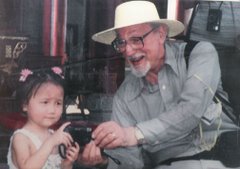


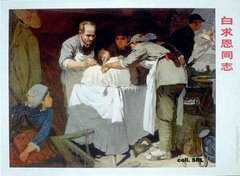
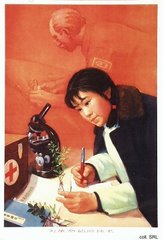

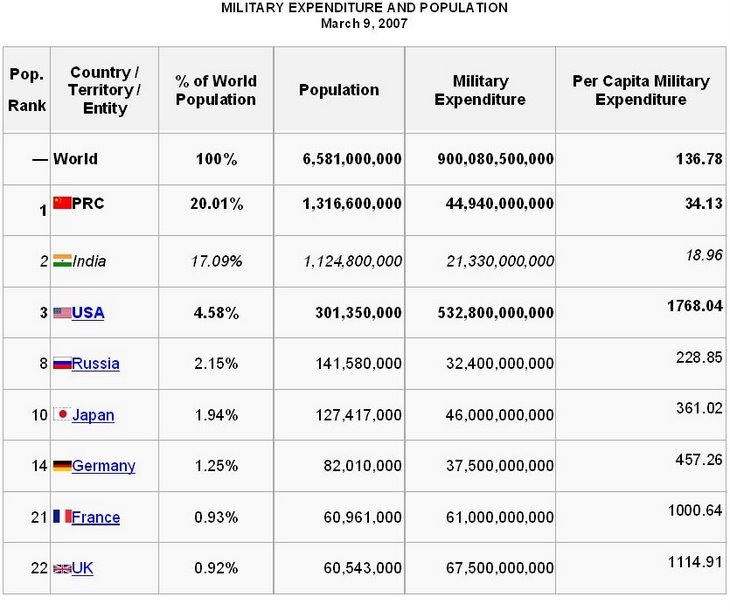
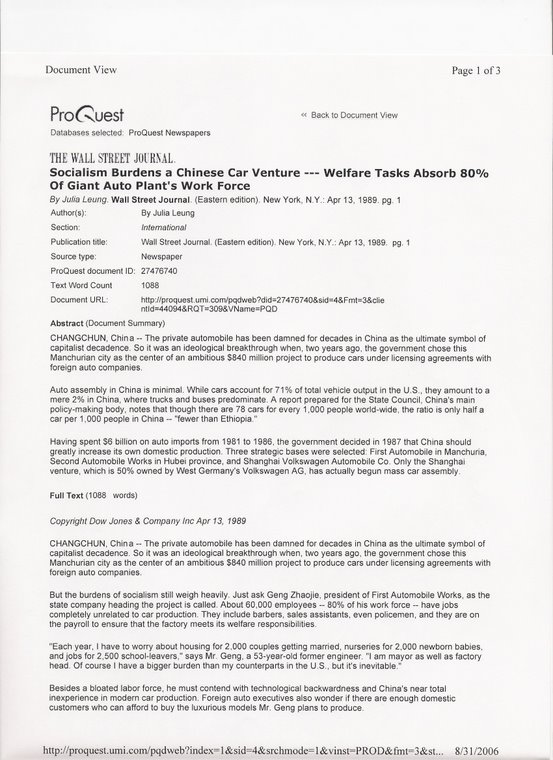
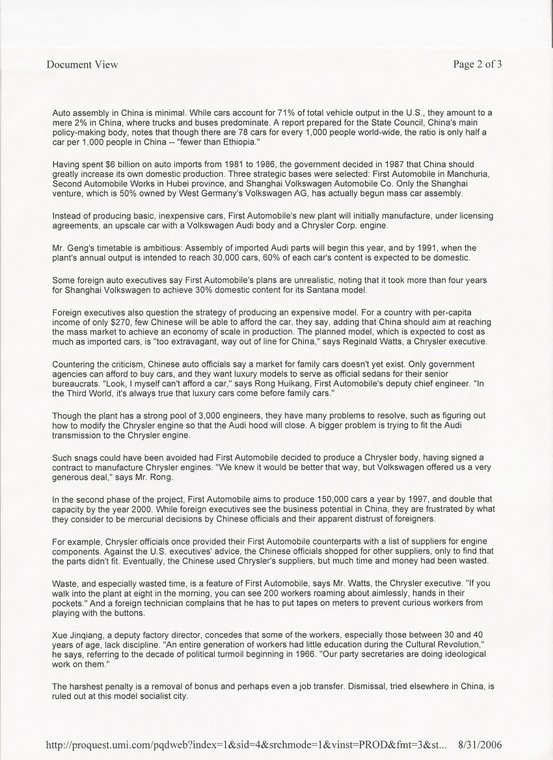
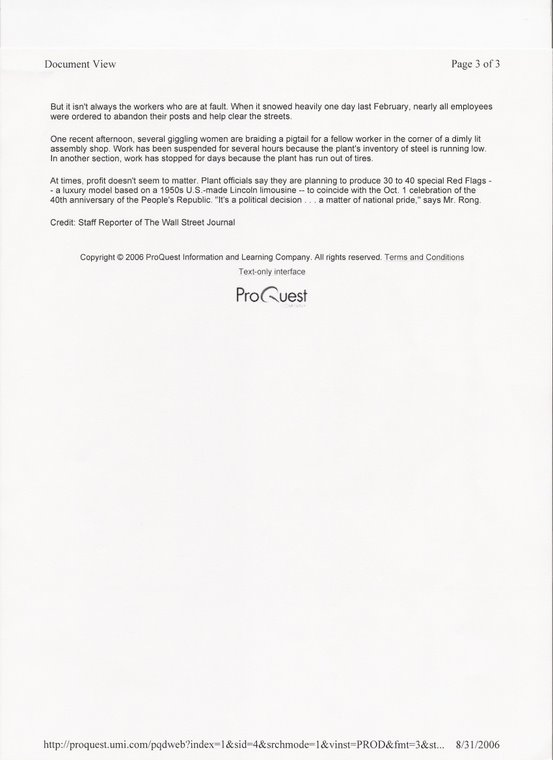

No comments:
Post a Comment